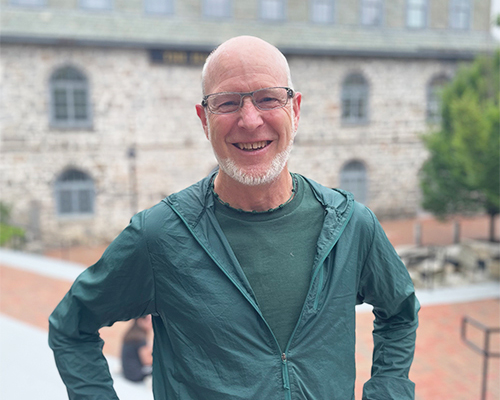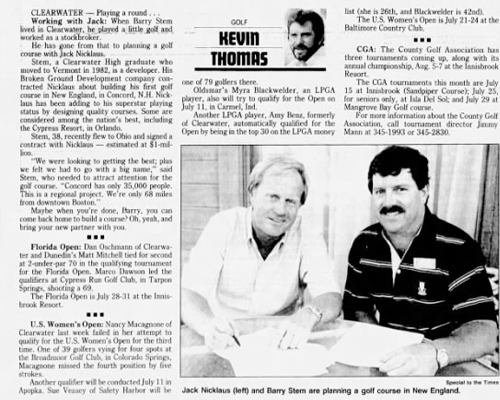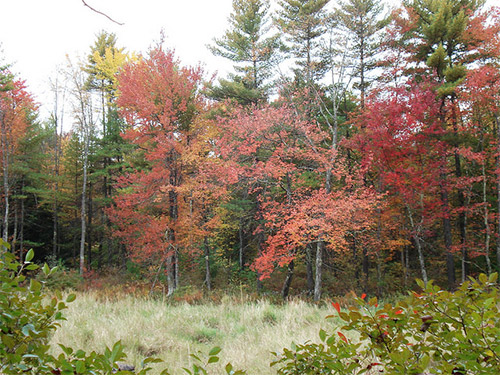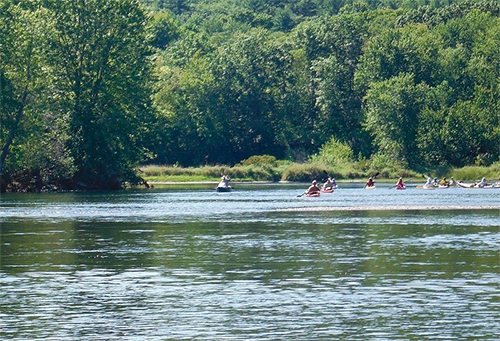A Conversation with Steve Blackmer About Five Rivers’ Origins
Interview and article by David Tirrell-Wysocki

Steve Blackmer of Canterbury is one of the founders of the Concord Conservation Trust, which became Five Rivers Conservation Trust in 2001. Steve recognized the importance of land conservation in the 1980s, when the city of Concord was at a development crossroads. He recognizes the growing importance of conservation now, when the world is at an environmental crossroads. As an environmentalist and now as chaplain at the Church of the Woods near his home, Steve says Five Rivers and other conservation organizations need everyone’s help, in big and small ways, to maintain our habitat.
The Concord Conservation Trust was founded in 1988. Steve was one of the founding members, with Concord Mayor Elizabeth Hager and Stephen Henninger of Concord Planning Department. Others were deeply involved, including Douglas Woodward of the Concord Planning Department, Jan McClure of the Society for the Protection of New Hampshire Forests, Herbert Little of Merrimack County Savings Bank and Raymond D’Amante, whose family owned large tracts of land on Concord Heights.
5R – Why was The Concord Conservation Trust (later Five Rivers) formed?
SB – A developer’s plan to build a golf course and many homes on 1,350 acres in Concord’s Broken Ground area wasn’t the specific reason, but it’s a great illustration that large-scale development was coming to Concord and the city was not ready. We formed a small group called Friends of Concord’s Open Space to specifically fight that development, and, in some ways, Five Rivers did grow out of that effort, so let’s just use that for the sake of telling the story.
It’s one thing to just stop bad ideas and it’s another thing to say ‘What do we want to protect up front?’ not just being in a negative place but being in a place of saying ‘What are the places we really care about?’ and creating capacity to identify, protect and respond to opportunities to protect important areas that really matter, in concert with the development at that point in the city of Concord. In a nutshell that was the impetus.

At the same time, I also ran for City Council and was elected to try to get private sector (conservation) activities going through what became Five Rivers, but also to begin to shift the city toward more attention toward conservation. I would bring the capabilities of municipal government toward this. Both of those things really made a difference. With Doug (Woodward) and Randy Raymond at the Concord Planning Department and Liz Hager became mayor, things really changed in the city’s capacity as well. It was really not just how do we stop bad things, but how do we affirmatively do right things.
5R – What were the hurdles?
SB – First, land trusts themselves were still pretty new at that time. There was not a lot of knowledge or capacity anywhere in the country, and for that matter, anywhere in the world. Aside from the venerable ones like the Forest Society, small-scale land trusts were a very new thing. As the lead policy person at the Forest Society, I needed to learn about small-scale land trusts and got permission from Paul Bofinger, my boss, to take Forest Society time and travel to a meeting of the newly forming Land Trust Alliance just to learn what is this and how do we do this.
Second, we had to find a group of people to put their names to it, and, for some of them, to put their time and effort into it. We also had to become incorporated. How do we do this?
So, we just started. In that situation, you learn what you can, then you just begin, so we did.
Oh, and there was no money, nothing.

5R – What were the first properties the organization conserved?
SB – The only early one that sticks in my mind was a little piece of land in East Concord called the Bois de Brodeur (Brodeur’s Woods) off Hoit Road. We were completely being responsive to the interests of the landowners. They wanted to preserve this property that had significance to their family. We didn’t have criteria for saying what kinds of properties to protect at that point – most land trusts didn’t at that point — but it was a place to begin. Without knowing much of anything, we said ‘Yes, sure we’ll take it’ and that began the learning.
My piece of it was not so much doing the actual land conservation, but creating the capacity. That’s what I am good at. I am not an expert in land conservation, but I’m really good at getting people organized to do something. Now, there is much more expertise, and that took a while to develop.
5R – Why did the Trust change its name to Five Rivers?
SB – I was not on the board then, but it was for two reasons.
1. There was a recognition that there was land worthy of protection and opportunities beyond the boundaries of Concord.
2. There were supporters and potential funding from a much bigger area and that the population base of Concord and the interest base wasn’t sufficient to make a viable organization.
5R – Why was the Conservation Trust (Five Rivers) important in 1988?

SB – One of the things that I, as a relative newcomer to Concord, loved about it was that it could be a capital city with all of the benefits of that while still having this pretty remarkable open space around it — to be a small city with a lot of nature right in and around the city. And that was going to change and it was going to change for the worse if there wasn’t very intentional action and attention to maintaining that. Not everything that I might have wished has been maintained, but it could have been a hell of a lot worse. It’s still, after 35 years now, a remarkable, pleasant place with a remarkable amount of open space in and around the city.
Then, all of the downtown improvements happened that were a perfect complement to the open space. If there is an attractive and interesting downtown and open space around it, those are the kinds of communities that are thriving, where people want to come to, particularly young people.
I look at the two of those together as being really instrumental in helping Concord become the very pleasant and attractive community it is now. All of the opportunities were there, they just needed that attention.
5R – Why is Five Rivers important now?
SB – The why hasn’t changed. What’s changed is probably greater ecological threats. Those have really escalated the awareness of climate change, and all of the factors that say ‘How do people live well on this Earth right now, given what human beings are doing to it?’ It has to do with habitat for wildlife and agriculture, and people being able to have the spiritual and emotional and physical opportunities to live in the natural setting. Those things have only gotten more important and it’s going to take even more attention to maintain them.
We are not going to be able to keep things the way they are. Nature may change in frightening ways, but maintaining that open space is one of the handful of important things we can do to make sure this still is a place where human beings can live well and all the other creatures that are made for here can live as well. I’d say it’s only gotten more important.
5R – Why is conserving land important to you, personally?
SB – It is so embedded in who I am.
The natural world has always been the place where primarily I find beauty and peace, restoration, physical renewal and bodily well-being, spiritual well-being. All of those things remain true and, in nature, I find the source of all being, which we call God. It’s where all life comes from. Why would one not want to everything one possibly could to conserve the source of all life? Human beings have an extraordinary capacity to destroy it. The stakes are pretty high. There is nothing more important in the world right now. There are other things that also are important, but there is nothing else more important.
5R – Why should conserving land be important to everyone?
SB – It’s not enough to say somebody else will do it. All life depends on insuring there is a healthy, vibrant Earth. There is no other way to maintain life. Human beings are doing such extraordinary things to change Earth that are damaging it. We are the ones who are causing all of the problems. It’s our responsibility, as well as our opportunity and our privilege to do what we can to restore, to renew, to save, to conserve.
Climate change didn’t just happen. Extinction of species doesn’t just happen. These are things that human beings are doing and this (conserving land) is a piece of acknowledging that and doing what we can to respond to it. It doesn’t matter how small or big it is, because it is necessary at every scale.



